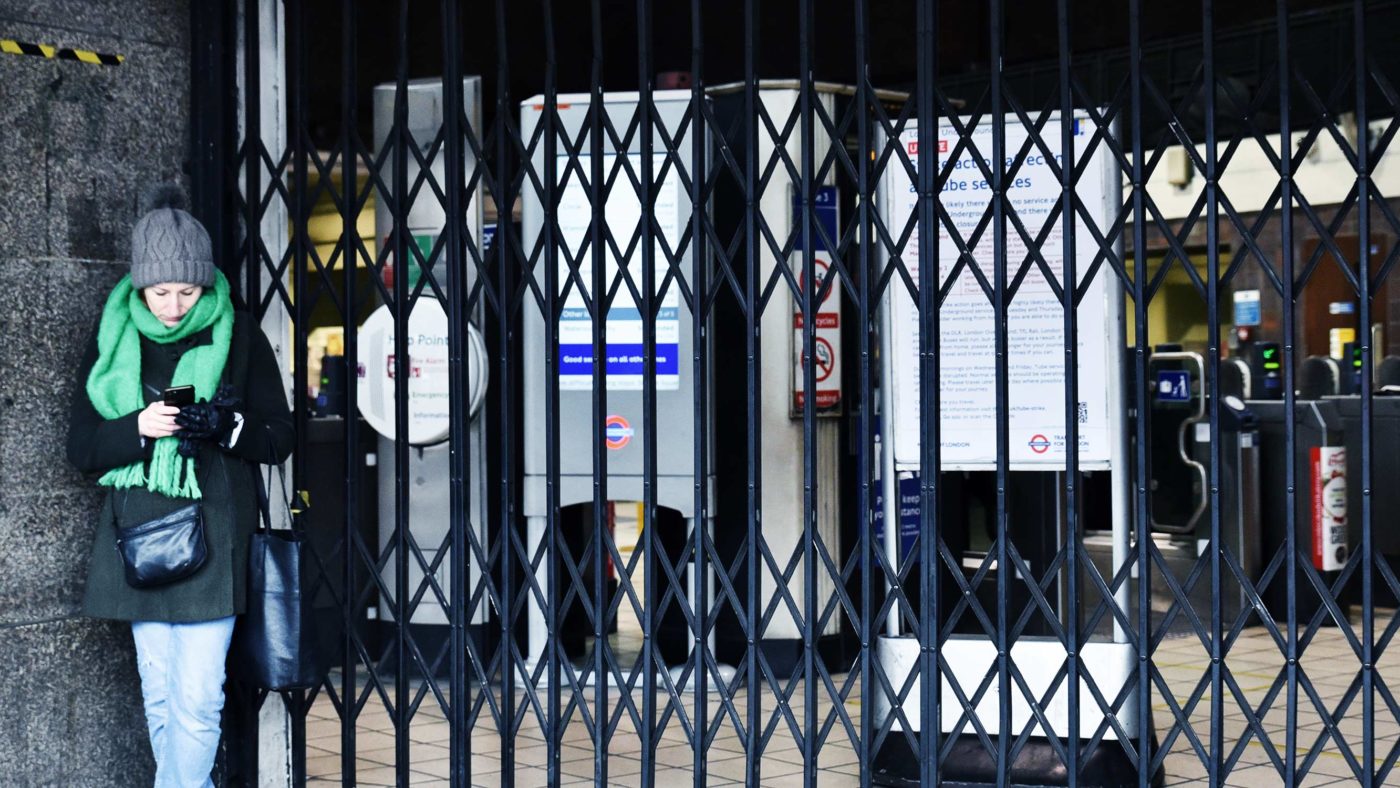At the best of times Britain’s rail unions convey an impression of living in a parallel universe where the service they provide is uniquely important, their staff victims of cruelty, social trends irrelevant, and technological progress a Luddite conspiracy. The latest strikes, inflicting misery on the up to 2 million people that wish to use the Tube daily, are nothing if not consistent with that attitude.
In this world, the two-year pandemic should be noted only to celebrate the ‘heroism of staff’ who kept services running (or, put another way, did their jobs), so that other essential workers could staff hospitals and care homes. That the same essential workers are now being impeded from elderly and cancer care by these selfish strikes is clearly of no concern. How quickly the RMT’s ‘heroes’ become uncaring zeros when they perceive a threat to their own wellbeing.
The insanity of the current strike however is not just self-deluded privileged hypocrisy. It’s two things, first that the RMT’s members have not, yet, been threatened with anything. This is a pre-emptive strike, based on the Mayor and Transport for London’s reasonable refusal to provide eternal guarantees on staff numbers and pension payments, regardless of public demand for services.
This isn’t a small problem, TFL’s reported passenger fares revenue has fallen by two thirds in the last year. This will bounce back, clearly, but it’s too soon to say how much, and no one is expecting the new trend in homeworking to disappear. There will need to be fewer services and fewer staff. And that’s before accounting for the general trend in rail productivity that has seen technology improve and staffing levels fall, year on year, without impacting services.
Train driving itself is not a job of the future; eventually the trains, like the Docklands Light Railway, will be automated, and on-board jobs will be about passenger care and safety. London Underground drivers are already over-paid (£55-100K salaries), due largely to inflexible practices like a closed shop for recruitment, and their disproportionate ability to damage the London economy. Many other roles simply would not exist were TfL privatised and TUPE rules relaxed to allow operators to put the commuters first.
Moreover, if the problem is encouraging passengers to use the service, the strikes are clearly self-defeating. We will all have colleagues who try buses and cycle to work for the first time this week. They may find, despite the weather, that this is preferable to relying on an often unreliable service. This is the time when TfL needs to be telling the public they miss them and want them back, not changing the locks on the station doors, and wailing ‘pity poor me’ on picket lines.
It is entirely understandable that the RMT, whose fundamental purpose is to protect their members privileges assert their right to strike, their militancy yields results. The key political question is why the Mayor, TfL and Government keep letting them get away with it. The result of striking, rather than working with operators to modernise services needs to be loss of privileges, not reward.
They could start by removing the closed shop, accelerating pension changes, and training temps to break the power of future strikes from London’s vast pool of contract labour. They could accelerate automation plans. They could expose the hypocrisy of these strikes in far stronger terms and respond to every provocation with a ruthless focus on passengers and London, not weak sympathy.
Click here to subscribe to our daily briefing – the best pieces from CapX and across the web.
CapX depends on the generosity of its readers. If you value what we do, please consider making a donation.


